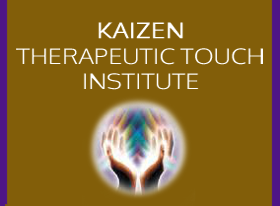 As a Therapeutic Touch teacher and coach, I’ve met a host of highly sensitive people. Deeply empathic and highly intuitive, they tell me they find themselves easily overwhelmed and/or depleted by others and the world around them. Often highly creative, introspective and reflective, many are drawn to the healing arts where their special empathic and gift of feeling allow them to connect deeply with others and work wonders when the conditions are right.
As a Therapeutic Touch teacher and coach, I’ve met a host of highly sensitive people. Deeply empathic and highly intuitive, they tell me they find themselves easily overwhelmed and/or depleted by others and the world around them. Often highly creative, introspective and reflective, many are drawn to the healing arts where their special empathic and gift of feeling allow them to connect deeply with others and work wonders when the conditions are right.
Highly sensitive people make fabulous healers…and yet, to be any good to others, they must first know what it takes to be at their best…which means…they must learn to manage their energy inputs and outflows. The key lies in boundary management.
Instead of shunning or rejecting their highly intuitive and deep feeling qualities due to the depletion or overwhelm they experience, highly sensitive people benefit from the theoretical framework, structure and foundational practices inherent in Therapeutic Touch knowledge and practice which provide a framework within which they can best offer their gifts to the world, while walking a life path that ensures they put themselves and their self-care first. As Dolores Krieger, RN, PhD. Co-founder of Therapeutic Touch so aptly observed, “We send what we are.”
If you consider yourself to be highly sensitive or intuitive here are a few questions to help you assess your boundary management habits:
- Do you tend to say “yes” to others (family or friends) when you’d really rather say “no”? If “yes”, consider why you put others’ needs or requests of you above your own. How does doing so benefit you; your relationship?
- Do you find yourself overwhelmed by the amount of subtle information you inadvertently “pick up” about people and the world around you? How do you experience these information downloads? How does it make you feel – depleted, anxious, irritable, on edge, depressed, or? What do you do with the subtle information you receive?
Learning to manage our relationships with ourselves and others starts with establishing agreements that clarify roles, standards and terms and conditions. Before doing so, let’s take a moment to consider some of the unique aptitudes and qualities of many highly sensitive people. The one attribute that shines loud and clear to me is “openness”….
Openness gives rise to the experience of resonance. Empathy, the ability to feel with another person or being, opens the “doors of perception” and creates a sense of connectedness…a feeling of oneness. In this state of “oneness” information freely flows. When the highly sensitive person is not well grounded, this beautiful quality of openness can be easily be trumped, overstimulated and/or depleted by another’s greater or weaker energy field.
Recognizing and owning “openness” as a core strength is a great place to start. Doing so will help the highly sensitive person reclaim their inner gifts, strengthen their sense of self and begin to enlist their heightened intuitive and perceptual skills to facilitate healing and transformation. It will also help them begin to learn to regulate the moment to moment state of openness.
Rather than accepting other peoples’ judgments or self-identifying as shy, weak, overly emotional, wishy-washy, a pushover and other tag words that cultivate self-doubt, anxiety, self-esteem and self-worth issues, highly sensitive people do well by integrating a few, foundational practices into their everyday life. Some of these – Grounding, Rooting and Centering – can be learned through the study and integrated through the practice of Therapeutic Touch.
Other approaches include direct, honest communications. Speaking directly from the heart requires that you know and trust yourself. It also enables and facilitates and strengthens that process. It’s in taking time to listen deeply within to discern “that which wants to happen” before making a commitment. In doing so, you honour yourself, the other and the space between.
Inner listening is key. As we begin to discern that which wants to emerge and heed it, it becomes easier and with time, and practice, we develop self-trust. It’s when we neglect or disregard our own inner guidance that we abandon ourselves and suffering ensues. Make time to listen, sense and feel deeply. Clarifying what wants to emerge in a particular situation, what’s needed to facilitate the process and action to be taken is a creative process, highly sensitive people can excel at. Coaching helps!





